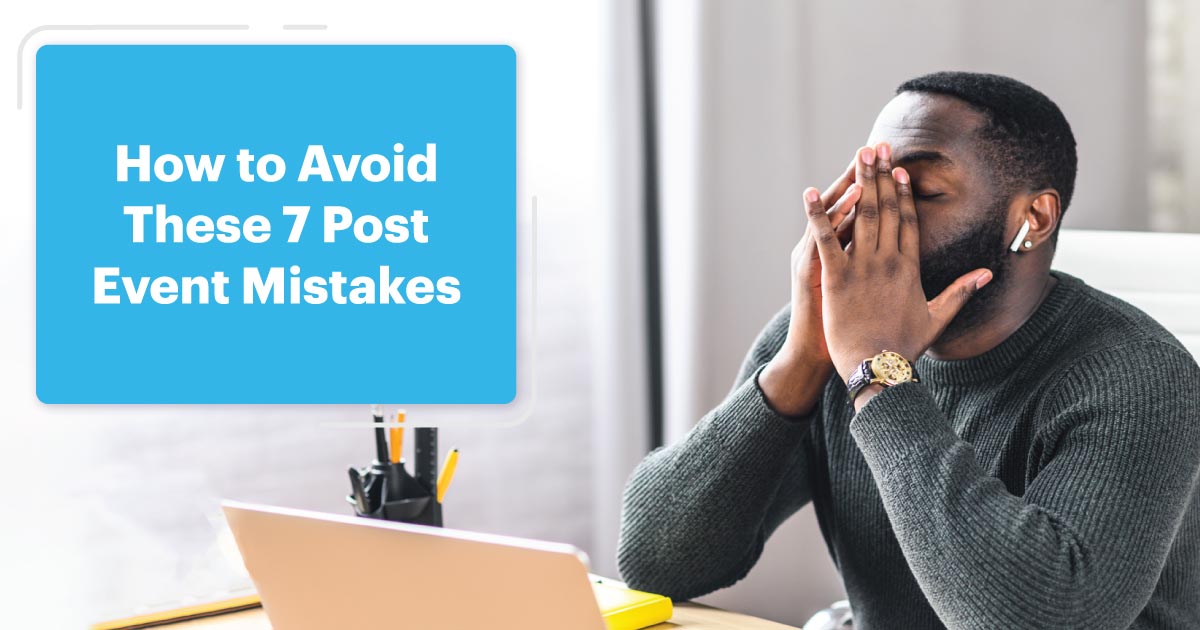Nonprofit Technology & Fundraising Blog
Subscribe to our mailing list
February 1, 2020 |

If you’ve ever asked, “What should I do after my fundraising event?”, you aren’t alone. When you’ve spent so much time organizing your event, it’s hard to focus on the post-event activities. That can be a costly mistake. Fundraising doesn’t stop once your event does. A successful fundraising event continues to make money long after everything is over. Here’s how to take advantage of the new opportunities for stewardship and outreach generated through your recent fundraising event.
Do you have a plan in place to collect information on everyone who attends your event? Events are a fantastic tool to acquire new donors and build future donations, but only if you take steps to ensure that. Since many event attendees are connecting with your organization for the first time, you won’t have any follow-up data about them unless you have a plan. Sure, you’ll have information on those that purchase tickets, but what about other attendees? How can you collect data on friends of board members, guests of the speaker or performer, and your sponsor’s friends or family and others? Make a plan to capture event attendee data during your event so you can cultivate relationships with your new supporters later.
Create a welcome email series to take advantage of the momentum from your fundraising event. Your welcome series should introduce new people to your organization in a set of emails that are typically spread out over several weeks to months. It creates trust and helps you establish a relationship with your event attendees. It also allows supporters to become more involved with your organization and learn about ways to support your mission.
Did you know donors who are thanked donate 43% more on average for their next gift and are better retained? Similar stats exist for volunteers and event sponsors. Donors and others who helped make your event a success expect to be thanked and often cite the “lack of a thank you” as the top reason why they stopped donating or volunteering. So make a plan to send those thank you emails or letters, preferably within 48 hours of your event. You’ll be glad you did when your experienced volunteers return to help with next year’s event. Your event sponsors may be more likely to increase their support levels for future events as well. Don’t forget to include a link to the landing page for next year’s event in your thank you. It is never too soon to start promoting your next big function!
Did you reach your event’s fundraising goals, or did you fall short? Let event-goers know that you value their involvement with your organization by sharing what your event accomplished. Consider sharing some of these or other impactful results:
Present event results in a fun and creative way to increase engagement. Check out tools like Biteable for quick videos or Canva for professional-looking infographics.
Learn how you can improve your next fundraising event by sending out a survey to event-goers, staff, volunteers, and sponsors. Send your survey within two weeks of your event to gather event impressions while they are fresh in peoples’ minds.
Photos are a powerful way to tell your story and inspire action. Donors love seeing images and respond well to them. Following your fundraising event, post a photo album on Facebook or Instagram of everyone participating in your successful event, any sponsor-related items, and your speaker or performer in action. Tag board members, sponsors, and speakers so the photos from your event show in their followers’ feeds. Also, invite participants to share their favorite event photos in the comments or to tag you in their posts. Include a photo link in your thank you emails with an invitation to connect with you on social.
Do your supporters know that a portion of your fundraising event ticket is tax-deductible and often match-eligible? Help build awareness for this by printing a reminder right on the event ticket. Also, make sure your staff asks event-goers if their employer or their spouse’s employer offers a matching gift program whenever they purchase items or make a donation at the event. Following the event, email donors to remind them that tickets and donations made during the event might be eligible for corporate matching gifts and include a way for them to check. You can add this in your thank-you note or send a separate follow-up communication.
What do you do after your fundraising events? Is there a must-do task that you complete as a follow-up? Share your ideas in the comments. We’d love to hear how you leverage the new opportunities for stewardship and outreach generated through your fundraising events.
Follow us on social!